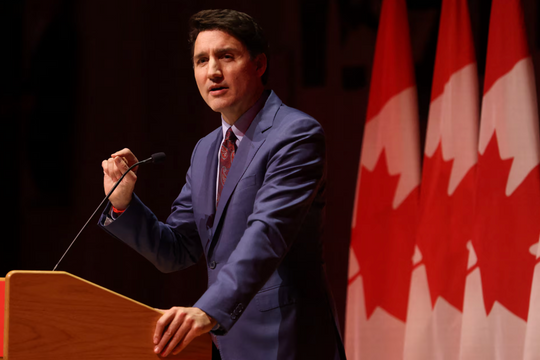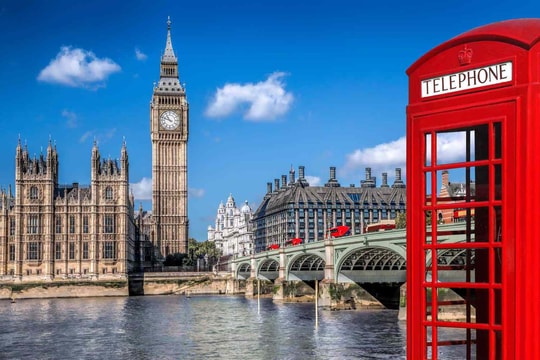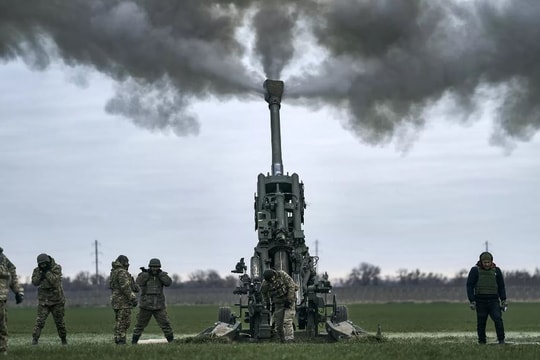What will happen to Canadian politics after Prime Minister Trudeau resigns?
Hopes are high for a new Canadian leader who can pull the Liberal Party out of its predicament ahead of the general election.
.jpg)
Prime Minister Justin Trudeau has announced his intention to resign on January 6, 2025. In the statement, he said he will leave his position as leader of Canada's ruling Liberal Party after the party elects a new leader.
Mr. Trudeau also added that the Canadian Parliament will be suspended until March 24 while waiting for a new leader of the Liberal Party to be elected.
Trudeau added that he "has one regret" in not reforming Canada's electoral process before a general election scheduled for the fall of 2025.
Trudeau, leader of the Liberal Party for 11 years and prime minister of Canada for nine, is facing a series of crises, from US President-elect Donald Trump’s tariff threats to the resignations of key allies. His resignation could be seen as a “premeditated” move, given that a general election is due later this year and Trudeau is expected to lose.
Mr. Trudeau swept the Liberal Party to power in 2015 promising a “bright path” for Canada. He championed progressive issues like combating climate change and addressing historical abuses of Indigenous peoples, but the final years of his premiership were marked by growing economic discontent.
Mr. Trudeau's government was also shaken in 2024 by the surprise resignation of Deputy Prime Minister and Finance Minister Chrystia Freeland, just hours before she was set to present her annual financial report.
The Liberal Party leadership is expected to meet this week, likely after a closed-door meeting. The suspension of Parliament is designed to give the party time to choose a new leader.
Possible replacements include former Bank of England and Bank of Canada Governor Mark Carney, Foreign Minister Mélanie Joly and former Deputy Prime Minister Chrystia Freeland.
Hopes are high for a new party leader who can pull the Liberals out of trouble before a general election scheduled for Oct. 20. Current polls show Trudeau's Liberals trailing the opposition Conservatives, led by progressive Pierre Poilievre.
“This country deserves a real choice in the next election and it has become clear to me that if I have to fight internally, I cannot be the best choice in that election,” Mr. Trudeau said on January 6.
Mr. Trudeau has been elected three times, most recently in 2021, when he remained in power but lost his majority in government. Since then, Poilievre’s Conservatives have built a lead of more than 20 percentage points over the Liberals in national polls.
Mr. Trudeau told reporters on January 6 that Poilievre's conservative vision “is not aligned with Canadians.”
“It makes no sense to stop the fight against climate change. Taking a step back from the values, strengths and diversity that Canada has always, always worked to unite itself around is not the right path for the country. Attacking journalists, attacking CBC organizations, that is not what Canadians need right now. We need an ambitious and optimistic vision for the future – and Pierre Poilievre does not offer that,” Trudeau said.
Responding to Trudeau's resignation on January 6, President-elect Trump further emphasized the idea that Canada should "become the 51st state" of the United States.
“Many Canadians love being the 51st state. The United States cannot continue to tolerate the massive trade deficits and subsidies that Canada needs to stay afloat. Justin Trudeau knows this and has resigned,” Trump wrote on the social media site Truth Social.


.png)



